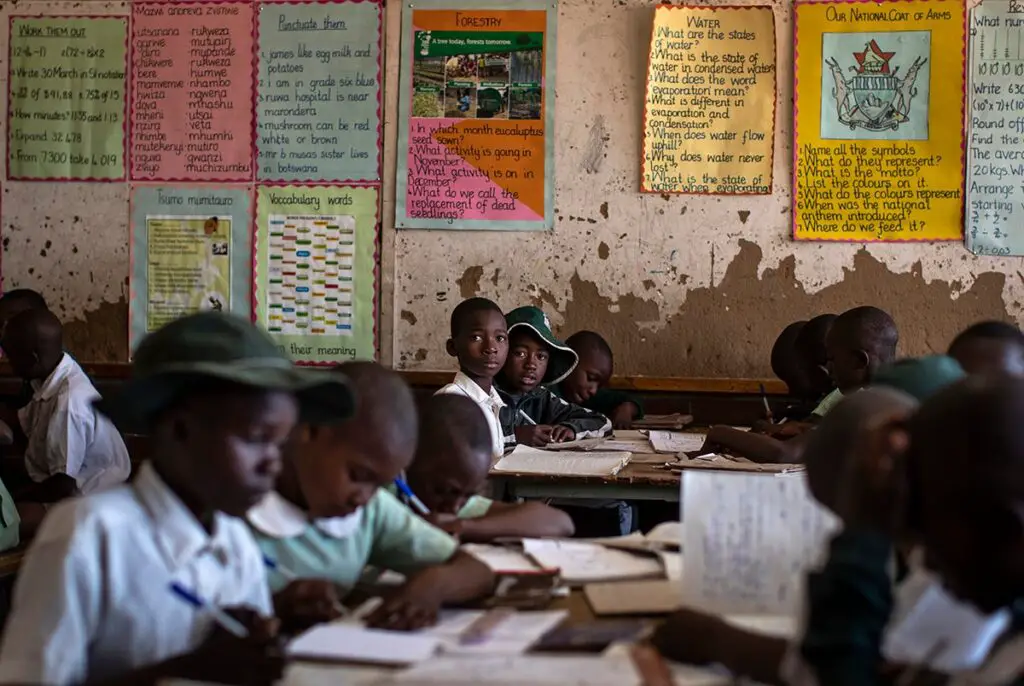- In rebuilding back better post-pandemic, governments, investors, and policymakers must harness one of Africa’s greatest resources: youthful human capital.
- Africa’s human capital is the engine behind the high rate of entrepreneurship cited at 22 percent of Africa’s roughly 1.4 billion population.
- To reap maximum dividends, the governments in Africa must however roll out robust healthcare systems to guarantee optimal productivity of the workforce.
Africa’s journey to economic development has seen various countries achieving certain milestones previously thought impossible for nations caught up in a number of growth-limiting challenges. The continent has made significant strides in its agricultural economy, leading to the development of various innovations such as Kenya’s mobile cash transfer service M-PESA and novel agri-based technologies.
Data transformation has also steadily grown in countries such as Kenya, which fintech firm Fluttterwave has recognized as an East Africa’s hub. Even with these trailblazing tech breakthroughs, human capital remains the continent’s greatest asset if harnessed optimally.
For the past decade, policymakers in Africa are putting a lot of focus on the continent’s local talent. The youth in Africa are the driving force of the economy, they are the brains behind leading innovations.
Unlike Africa’s other natural resources that have sustained and maintained the livelihood of billions over the years, its human capital is taking a centre stage, albeit with difficulties.
Human capital is the economic value of a worker’s experience and skill. Human capital includes various components such as education, skills, training, intelligence, innovation and health, among other values an individual can offer.
It carries no direct value on a balance sheet, and thus we cannot compute its plain figures and valuation. Fortunately, this very vague attribute of human capital is vital to any economy’s growth.
Read: Nigeria: Inflation, high cost of living and food insecurity blot Buhari’s administration.
For instance, a company is considered as efficient as its employees from top to bottom. This is why the Human Resources department is the fulcrum of any organization. In truth, its primary function is to ensure that its workforce is optimized, managed efficiently and has a conducive work environment. We cannot scale human capital since it encompasses the very human factor in every economic activity.
Not all forms of labour are equal. Some individuals provide better quality than others. While other parties offer a sense of innovation that the former is unable. Due to this dynamic and shifting nature, human capital cannot depreciate.
This is because the different skillset of each individual has different wages. The only way for human capital to depreciate is through increased unemployment, high injury and severe mental decline. Unfortunately, these are some of the factors that have significantly plagued Africa’s greatest natural resource.

Due to this adaptive factor, we can calculate the “investments” or efforts made to strengthen and support human capital. The HR managers can calculate the total provided before and after the investments. They calculate the Return On Investment of human capital by dividing the company’s total profits by its overall investment in human capital. The same concept can be upscaled to find the accurate reading on the profitability of Africa’s greatest natural resource.
Africa’s vast potential
Africa is considered the youngest continent in the world with roughly 70 percent of its total population is under 30 years, and by 2040 it will have the world’s highest workforce. Due to this reason, the potential of Africa’s human capital is staggering. As mentioned, human capital is dynamic and can encompass a vast scope. To begin with, Africa’s growing human capital is responsible for its rapid digital transformation.
Africa’s e-commerce and fintech industries, which are largely driven by youthful workforce, have a total market valuation of $40 billion and $994.40 million respectively. These markets have heavily reliant on the innovations of Africa’s youth, and its digital transformation has opened doors for innovations and businesses. At least 60 percent of the population has access to the internet.
Read: Billion dollar mining industry for Zimbabwe: Vision or pipe dream?
According to statistics, by 2025, 167 million more people will have subscribed to mobile services, making up 623 million users. An increasing number of governments are pouring millions of dollars into supporting tech-savvy youths to pursue their passion and develop new startups. This factor is only possible through the innovative aspect of Africa’s human capital, and a primary example is Africa’s fintech industry.
Organizations such as Yellow Card, Flutterwave and Luno have each achieved great heights and are the product of local talent going beyond the norms of society. Olugbenga Aglooba, CEO of Flutterwave, was among the first business leader whose organizations achieved the $1 billion mark and attained unicorn status, a feat that most global organizations just dream about.
He emphasizes that Africa has the potential to be self-sufficient and reliant. By focusing on our human capital instead of depending on international help, we could eventually build a system that can innovate and sustain its economy.
Africa’s human capital is also responsible for the high rate of entrepreneurship at 22 percent of its entire population. Africa’s female entrepreneurship rate is also the highest n the world at 27 percent. This means that African women are twice as likely to start a business than anywhere in the world. Through the skills and innovation of these local talents, Africa can tap into the world’s most thriving economy, the knowledge economy.
A knowledge economy
A knowledge-based economy refers to an economic system in which knowledge and intellectual capital are the primary drivers of growth. In a way, it heavily relies on the skills and capabilities of its human capital. A knowledge economy thrives on technology, innovation and education to create and disseminate new knowledge and apply it to create new jobs, products and services.
Currently, most developed countries have shifted from industrialization to a knowledge-based economy.
Africa has already proven that it has the available resources, and its innovative sector shows potential. Unfortunately, inadequate government support hinders its transition to a knowledge-based economy.
For any nation to truly embrace its new resource, it must invest in its growth. This means it should start by creating a conducive environment for its development. Governments can support their local talent by emphasizing its education and employment rates.
Today although being the “big four of Africa”, countries such as Kenya, South Africa, Nigeria, and Egypt are still significantly wasting their human capital potential. Unemployment in Kenya is at an all-time high as corruption strangles organizations.
Today it’s common for young people to “buy” their way into employment or at least rely on nepotism to gain a decent job. South Africa’s unemployment rate was almost 34 percent in the second quarter of 2022.
Read: Kenyan Tech Startups Bag $574M in Funding in 2022.
Ensuring that workers have good health care is among the top priorities of any nation. Fortunately, some African Nations, such as Rwanda, are taking initiatives to enhance healthcare.
Authorities in Rwanda are close to providing Universal Healthcare Coverage to all its citizens, and doing so alleviates the stress of extremely high medical bills. In addition, its human capital can focus more on improving its respective trade of work.
If Africa can focus on its education, healthcare, and unemployment, it could kickstart utilizing its greatest natural resource.











